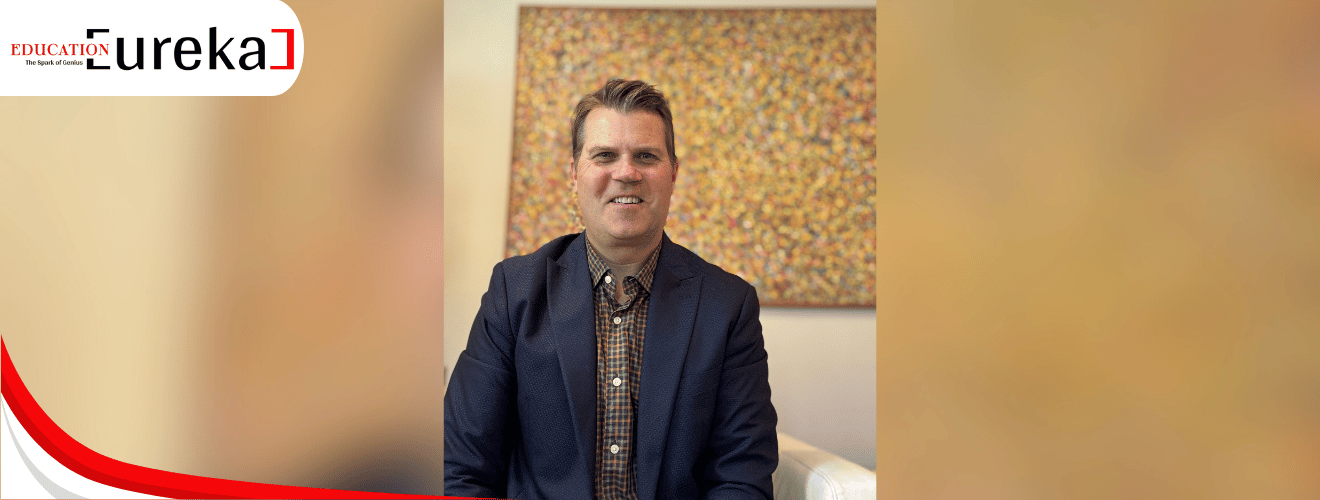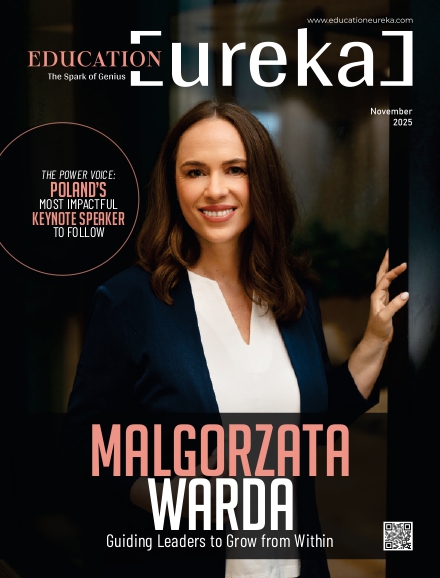
A father’s journey to heal, help, and honor his son through every step forward!
Life is not about what happens to us. It’s about what we do with what happens to us. Few people embody this truth more powerfully than Stephen Panus. A mentor, coach, inspirational speaker, and best-selling author, Stephen’s journey took a tragic turn on August 9, 2020. On that day, his 16-year-old son, Jake, a kind, bright, and magnetic young soul, lost his life as a passenger in a vehicle involved in a reckless driving crash. The news shattered Stephen’s world, bringing unimaginable grief and heartbreak. Yet, from the depths of this loss, Stephen chose not to be defined by tragedy, but to transform it into something that could uplift others.
In the years since, Stephen has made it his life’s mission to inspire, guide, and support others who are navigating pain, uncertainty, or personal challenges. His book, Walk On, became a best-seller and was featured on Good Morning America as a GMA Book Club buzz selection. With heartfelt storytelling and hard-earned wisdom, the book received glowing praise from Kirkus Reviews and touched lives across the country.
Stephen’s voice resonates because it comes from a place of truth. He doesn’t just talk about resilience, he lives it. Today, through coaching, speaking engagements, and his writing, Stephen is helping people find light in the darkest moments and reminding them: no matter what happens, we can still walk on.
Stephen’s journey through change, discomfort, and hardship became a gateway to transformation. Faced with challenges that pushed him beyond familiar limits, he stepped away from a 35-year career in sports marketing to embrace a new role: a voice for hope, resilience, gratitude, and love.
As an inspirational speaker, mentor, and coach, he emphasizes that “humanity is about being more, not having more” and that ‘each act of kindness creates a ripple and the echoes of kindness are endless’, among a host of other takeaways. I am a passionate mentor, coach and advocate for leadership.” He guides others toward leadership growth, personal development, and inner strength, whether mentoring students, addressing audiences, or helping those in need find their footing.
His work as a speaker and mentor holds deep significance, allowing him to honor Jake’s legacy of uplifting others and spreading joy. It also lets him fill a father-like role for young dreamers, students and athletes, whose aspirations mirror the ones he once held. Through each connection, he strives to empower others to rise above their struggles, live with purpose, and discover the best versions of themselves.
Months after Jake’s death, Stephen watched Liam and understood a painful truth: if grief could overwhelm a grown man, how could an eleven-year-old begin to make sense of losing his brother? Despite his own shattered spirit, Stephen recognized his duty as a father to guide Liam forward, to prove that even in despair, life could regain meaning and joy.
One afternoon, he handed Liam a buck knife and led him to an old tree on their property. He asked his son to carve a square of bark from the trunk. Liam did so, then turned with quiet curiosity: “Now what, Dad?”
Stephen explained that the tree would slowly heal, its scar covered by new growth. The mark might never vanish completely, its texture, color, and shape would differ from what was lost. But the tree would endure. So too, he told Liam, would they. Their hearts would mend, not by erasing the pain, but by growing around it. Life would feel different, but they could learn to live fully again.
Writing began as a lifeline for Stephen, a raw, grief-stricken letter to Jake. It evolved into something unexpected. Sorting through old notes, he rediscovered years of handwritten messages he’d left for his sons: daily affirmations on sticky notes, tucked into lunch bags or placed near breakfast plates. These were meant to arm Jake and Liam with wisdom, principles for living with purpose, resilience, and kindness.
Yet after Jake’s death, Stephen questioned whether those lessons still held meaning. The memoir Walk On emerged from that reckoning. It became a testament to perseverance, not just for Liam, but for anyone facing loss or hardship. Through candid reflections and hard-won insights, the book maps a path forward, blending personal anguish with universal truths about healing.
The response surprised him. Walk On earned recognition from Good Morning America, praise from Kirkus Reviews, and endorsements from figures like ESPN’s Marty Smith and CBS’s Rob Marciano.
The collapse of their family life was sudden and catastrophic. It felt as though someone had torn into Stephen’s chest, leaving an emptiness where warmth once lived. In an instant, the life they knew shattered, replaced by a hollow ache and a world stripped of meaning. For Stephen, the shock numbed him, leaving only disbelief in its wake.
Losing a child is a sorrow no parent should endure. The grief that followed was fierce, unrelenting, and steeped in darkness. Jake’s absence became a permanent divide, a life split into before and after. Every day became a battle. Beliefs faltered; faith wavered. Ordinary tasks felt foreign, and survival itself grew fragile. Food loses its taste, sleeps its rest. Only the presence of his wife, Kellie, and son, Liam, anchored him to the present.
Grief of this magnitude does not merely bring tears. It wrenches the body into shuddering sobs, a raw testament to love’s depth and loss’s cruel weight. Those tears, Stephen learned, are not weakness but proof of humanity, an alarm that life’s beauty lies in its fragility. To weep is to honor what matters, to affirm that love outlasts even death.
Jake’s death took Stephen with him. Yet whether that loss held meaning depended on how he chose to live forward. As the Buddhist teacher Thich Nhat Hanh once said, “They are us, and we are them. When they die, we die with them. When we live, they live through us.” Peace, Stephen realized, comes from carrying Jake’s memory not as a wound but as a compass.
When asked how Jake died, Stephen redirects the conversation: “Let me tell you how he lived.” Transforming pain into purpose demands more than courage. It requires hope that flickers even in despair, faith that persists when answers elude, and resilience forged in the quiet moments between breaths. It calls for leaning on others, family, friends, even strangers, and accepting that vulnerability is not defeat but the bedrock of connection.
Strength, Stephen discovered, lies in allowing grief its space. It’s okay to feel broken, to admit defeat, to seek help. The hardest battles are fought not in the world but within the mind. Through therapy, Buddhist teachings, and Native American wisdom, Stephen found solace. Books on loss and spirituality became lifelines, guiding him toward a fragile but growing light. To walk forward is not to move on but to carry love forward, one step, one breath, one story at a time.
The first defining moment arrived on September 21, 2021, just over a year after Jake’s passing. Stephen traveled to Columbia, South Carolina, to present the inaugural Jake Panus Walk On Scholarship at the University of South Carolina to a walk-on football player. Head Coach Shane Beamer invited him to speak to the team early that morning. Standing before a room of young athletes, Stephen shared his story with raw honesty, then announced Matthew Bailey, a walk-on long snapper, as the scholarship recipient. As Matthew stepped forward to shake his hand, Stephen saw genuine happiness in the young man’s eyes, and felt Jake’s presence, steadying him in that fragile, hopeful instant.
That morning became a turning point. In the quiet courage of vulnerability, Stephen discovered a renewed sense of purpose: to inspire others through speaking, writing, and guiding young people. Jake’s legacy, he realized, could live not just in memory but in action, through scholarships that empower others to chase their dreams as Jake once did.
To date, seven scholarships have been awarded across South Dakota’s Pine Ridge Indian Reservation, in partnership with Red Cloud Indian School, and at the University of South Carolina, where Jake once imagined his own future. Each recipient carries forward a piece of Jake’s spirit, allowing Stephen to remain a father guiding not just his son’s memory, but the aspirations of others. For a parent who has lost so much, these moments, hearing Jake’s name spoken aloud, seeing his influence ripple outward, offer a fragile, powerful kind of healing. The scholarships, now endowed, ensure Jake’s light continues to shine, one student at a time.
Stephen spent his first year adrift, lost in a darkness he couldn’t escape. He longed to rediscover meaning, to grasp the “why” that gives life its weight, a hunger shared across languages and borders. Without purpose, he felt untethered, a sentiment echoed in Mark Twain’s words about the two pivotal days: being born and discovering why.
Meaning, he realized, isn’t found but forged. Borrowed ideals, wealth, status, achievement, crumble in hardship, leaving only raw humanity. Mary Shelley, who buried three children and a husband, once wrote that life’s riddle has one answer: to grow and help others. When adversity strikes, it demands inner strength. Hope becomes a lifeline, a reminder that even the deepest pain shifts with time, as Heraclitus observed: no river remains unchanged.
Stephen began seeing people as carrying invisible burdens, their struggles tucked out of sight. This shift in perspective softened his interactions, framing compassion as a choice. Viktor Frankl’s wisdom resonated: while circumstance can’t always be controlled, our response remains ours.
In his second year, Stephen stopped running. Inspired by the bison, creatures that charge storms rather than flee, he faced his anguish directly. Avoiding sorrow only prolongs it; numbness lies. Healing begins when we let grief speak, walk beside it, and accept that some wounds don’t vanish but become part of us.
Losing his son Jake left a shadow. Stephen learned that grief isn’t something to outpace or mute. It lingers, sharp and unyielding. Yet by releasing his suffering, not Jake’s memory, he found movement again. Vulnerability, once a weakness, became his anchor. Strength emerged not from ignoring pain but from bearing it openly.
Men, he reflected, are taught to hide tears, to “dust off” and push forward. But some losses defy that script. Instead of a roadblock, Stephen reframed adversity as a teacher. Standing close to death reshaped his view of life, sharpening its urgency and beauty. To carry Jake’s legacy meant living fully, not in spite of the storm, but through it.
Stephen describes leading with love as a transformative approach often overlooked in competitive arenas like sports, academia, or business. It begins with intentional guidance rooted in kindness, courage, and deep respect. This style of leadership emphasizes strength through genuine care, holding others to high standards while encouraging growth, fostering trust, and ensuring accountability.
At its foundation, it requires self-awareness, empathy, and emotional intelligence. A compassionate leader seeks to understand individual challenges, meeting people where they are without compromising expectations. They recognize that those they guide—students, athletes, or colleagues, are more than their accomplishments or metrics. By prioritizing character over ego and growth over perfection, they cultivate environments where individuals feel valued, safe to take risks, and empowered to embrace their authentic selves.
Leading with love is not about softness; it’s about choosing people over control and long-term potential over short-term wins. It’s a daily practice of showing up with clarity and care, ensuring that every action aligns with the belief that true success stems from uplifting others.
Stephen reflects on the importance of balance as a cornerstone of emotional, mental, and spiritual well-being. Many people manage their responsibilities, yet few achieve true equilibrium in their daily lives. When focus tilts too heavily toward one aspect of existence, exhaustion and anxiety disrupt harmony, leaving little room for peace.
Native American traditions speak of walking a balanced path, often called “walking in beauty.” This philosophy teaches discernment, knowing when to rest and when to act. Life’s unpredictability defies control, but a balanced mindset allows adjustments in emotional and mental responses. By prioritizing self-reflection, intentional growth, and meaningful connections, individuals cultivate stability in their emotions, actions, and thoughts. This foundation fosters a healthy mindset, creating a life rich with purpose.
Embracing life’s wholeness ensures the body and spirit receive what they need to thrive. It also strengthens bonds with others, expanding one’s sense of shared humanity.
Stephen’s understanding of purpose has shifted through experience. He now lives by a principle attributed to Hasan Al-Basri, a 7th-century scholar: Life is three days, yesterday, today, and tomorrow. Yesterday cannot be changed; it drifts away like a leaf on water. Tomorrow remains uncertain, making worry futile. The key lies in today, appreciating each moment, acting with intention, and finding meaning in the present. Life, he emphasizes, is not a distant promise but a current reality. By focusing on the now, every day becomes a step toward a fulfilling existence.
Sharing personal truths while forging bonds with others requires thoughtful balance. It’s a choice each person must consider carefully, deciding how much to reveal and how to engage. Stephen reflects on his own perspective, recognizing that life’s journey is shaped by individual beliefs and choices.
Every person enters this world with lessons to learn, facing challenges that test their character and resolve. These moments define who they become, revealing inner strength and capacity for growth. Life isn’t meant to be lived transactionally, measured by conditions or titles. Instead, it’s about forming genuine bonds, loving without limits, giving without expectation, and seeing others as they truly are.
To be human is to love and seek love in return. Love transforms into action through service, turning care into tangible gestures. It’s about making others feel valued, ensuring they know they matter. True connection means seeing oneself in others, recognizing shared struggles and joys. It’s sensing another’s pain, celebrating their presence, and refusing to take relationships for granted.
Life’s richness lies in savoring small moments, practicing gratitude for what one has, and focusing less on what’s lacking. It demands accountability, owning one’s words, actions, and their impact. Ultimately, it’s a journey to become the best version of oneself, not for praise, but for the quiet fulfillment of living with integrity and heart.
In May 2022, Liam and Stephen, accompanied by their minister, visited the Pine Ridge Indian Reservation to present the first two college scholarships from the Jake Panus Memorial Scholarship (later renamed the Jake Panus Walk On Scholarship) to graduating Lakota women at Red Cloud Indian School. During their meeting with school administrators, a question arose about the scholarship’s connection to the University of South Carolina and its name. Liam and Stephen explained the term “walk-on” as it relates to student athletes who join teams without formal recruitment.
The administrators then revealed a deeper cultural significance: in Lakota tradition, “walking on” symbolizes the continuation of a journey beyond physical life, reflecting the belief that energy endures and transitions into the next realm. This revelation struck a chord. Though the scholarship’s name originally honored a loved one through the lens of sports, its phrasing unintentionally echoed a sacred cultural perspective. The alignment felt neither random nor forced, it carried the quiet inevitability of a shared truth.
That moment became pivotal. The dual meaning of “walk on” bridged two worlds, offering a lens through which loss, legacy, and hope could coexist. It affirmed the scholarship’s purpose while honoring a tradition that views life as an unbroken continuum. When the time came to title the book, this intersection of stories and symbols felt like the only choice, an example to how seemingly separate paths can illuminate one another in unexpected ways.
Stephen highlights a crucial shift in modern leadership. While high-pressure settings often prioritize toughness and speed, truly impactful leaders blend high standards with genuine care. Kindness, far from being a weakness, becomes a strategic strength. It fosters trust, encourages creative risks, and builds teams that feel safe to contribute fully.
Empathy and active listening aren’t just nice-to-have traits, they’re tools that create resilient cultures. Leaders who prioritize humanity cultivate environments where individuals thrive under pressure, united by shared purpose. True success, he notes, isn’t measured by external validation but by the quiet choices made behind the scenes: how setbacks are handled, how others are treated, and how perseverance persists when no one is watching.
Championship isn’t about accolades but mindset. It’s the grit to keep moving forward, the belief in one’s purpose, and the humility to grow beyond personal ambition. Life’s toughest challenges, he argues, are overcome not by luck but by a decision to see obstacles as stepping stones. A strong mindset reframes pain as progress, turns dreams into plans, and proves that success starts with believing in one’s own capacity to rise, again and again.
Stephen’s journey reveals an essential truth: the moments that threaten to break us often hold the keys to our greatest strength. He learned that even in darkness, resilience can become a guiding light, transforming pain into purpose. Life’s hardest chapters don’t have to define us, they can propel us forward.
His story reminds us that answers aren’t found in distant places but within ourselves. Everyone faces struggles, but the choice to keep moving, to turn heartbreak into hope, is where true power lies. When the road seems impossible, we discover we’re capable of more than we imagined.
Stephen understands what it means to face the unimaginable. After losing his firstborn son, he continues to move forward, not just for himself but for those who rely on his strength, his family and the young people who look to him as an example. His journey is anchored in three principles: purpose, perseverance, and passion. To “Walk On” is a conscious decision to choose courage over comfort, especially when uncertainty clouds the way. It means standing up after being knocked down, not because it’s simple, but because purpose leaves no other choice.
He draws strength from the stories of others who have endured hardship, finding quiet resolve in reflection, faith, and the belief that every challenge molds him for something greater. His focus extends beyond personal growth; he channels his energy into guiding others through their struggles, reminding them they are not alone.
The mindset one carries shapes the life one leads. Stephen laces up his shoes, lifts his head, and keeps moving forward. He walks not out of obligation, but because he recognizes the privilege of growth that comes with each step. This is how he evolves—into the man, mentor, and leader he aims to become.
The mind’s quiet battles shape tomorrow’s victories. Those who conquer these unseen struggles each day forge their futures. Stephen’s philosophy rests on a straightforward truth: lasting achievement begins within.
Through speaking engagements, written words, mentorship, and advocacy, he aims to amplify a message often drowned by society’s noise, that a person’s value lies not in titles, trophies, or status, but in the quiet persistence of their spirit, the grit to rise after setbacks, and the bravery to face each challenge anew. His work serves as a reminder, particularly to students, athletes, and those weighed by expectations, that true success blooms from character, not external validation.
Driven by purpose, he strives to ensure Jake’s enduring influence, an alarm for those facing hardships, seeking leadership growth, or daring to acknowledge life’s fullness. His mission centers on helping others step into their potential, not as perfect figures, but as humans unafraid to grow, stumble, and rise again, sculpting their best selves through every choice and challenge.
Discover more insightful articles on education trends, exclusive interviews, in-depth magazines, and the latest educational news—explore now on the Education Eureka website.






Welcome to the future of digital storytelling, where creativity meets innovation. We’re not just a magazine platform; we’re a team of passionate visionaries committed to transforming how stories are shared, celebrated, and experienced in the digital age. Join us as we inspire, inform, and redefine the world of digital magazines.
© Copyright 2025 | educationeureka | All Rights Reserved.


